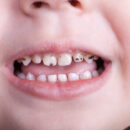Children of children born through IVF

Eco-children: physical and reproductive health
Despite the fact that nowadays it is quite difficult to find a person not familiar with IVF, many people still treat the IVF procedure and children born as a result with a certain wariness and prejudice. Some people say that In Vitro Fertilization pregnancy is different from a regular pregnancy, some say that IVF-born children also have their peculiarities, and the hottest discussions are devoted to the question, what influence will the way of future conception have on the reproductive function of IVF-born children? We decided to look into the situation and clarify it by answering the most pressing questions!
Is an IVF pregnancy different from a normal pregnancy?
An IVF pregnancy differs from a natural pregnancy only in the way of conception and the need for hormonal support therapy to implant the embryo into the uterine cavity. Therefore, as a rule, a woman is observed during the first trimester at a fertility clinic, and after the first screening, she registers at the maternity clinic of her place of residence.
Can an IVF baby have genetic defects?
Members of the European Association of Human Reproduction and Embryology come to the conclusion based on many years of monitoring that in-vitro fertilization procedure does not increase the risk of giving birth to a child with developmental defects. Moreover, IVF is often performed for medical indications, for example, if the future parents have relatives with hereditary genetic diseases. Thanks to modern technology and preimplantation preparation, an embryologist can select only healthy embryos for implantation. Of course, this does not reduce the risk of having a baby with genetic abnormalities to zero and does not cancel the need for routine prenatal diagnosis during pregnancy.
If you are interested in costs of surrogacy, we advise you USA-based company Delivering Dreams.
Is it true that IVF babies are retarded?
And this fact is nothing more than fiction. The intelligence of any child depends on several factors, including genetics, parental inheritance, upbringing, and environment. It’s hard to argue with the fact that even siblings can be very different from each other in ability, talent, and health. Thus, the mode of conception does not affect whatsoever on the health or development of the child.
Are children conceived through IVF infertile?
This has always been the topic of most interest, but time has resolved all questions. Louise Brown, the first IVF baby was born on July 25, 1978, in the United Kingdom. Her mother, because of fallopian tubes obstruction, could not conceive for long 9 years, and only thanks to the research work of the outstanding embryologist Robert Edwards and gynecologist Patrick Steptoe, was she able to give birth to a genetically born child. This event was truly historic because before that more than 600 transplants to different women had been unsuccessful. After that, in 1980, scientists in Australia succeeded, where the first IVF baby was born, and in 1981, Elizabeth Carr was born in the United States.
Today, Louise Brown is a happy mother of two sons who were conceived naturally. Her sister Natalie, who was also conceived through IVF, also did not need the help of reproductologists. And in 2010, American Elizabeth Carr also became a mother without the use of reproductive technology.
Also, several studies assessing the physical and sexual development of IVF children in different age groups up to 12 years of age showed no differences in comparison with their peers. Special attention was paid to the potential ability to conceive (fertility) of boys and girls aged 8 to 14 years. As a result, the hormonal status of the children in both groups showed no abnormalities. This means that conception by IVF may not be the cause of infertility.








